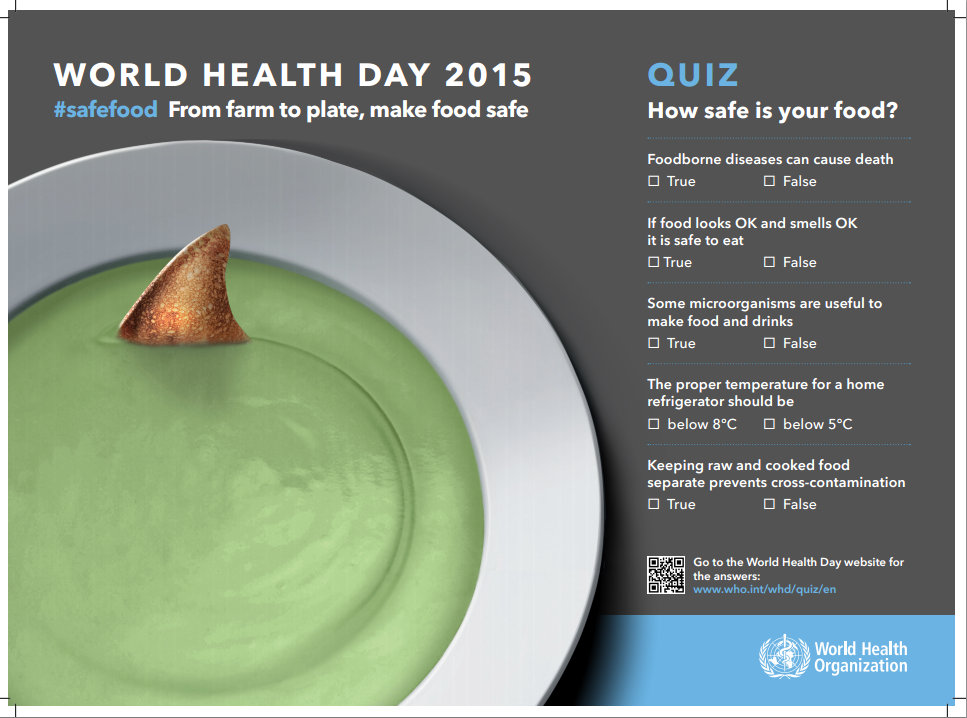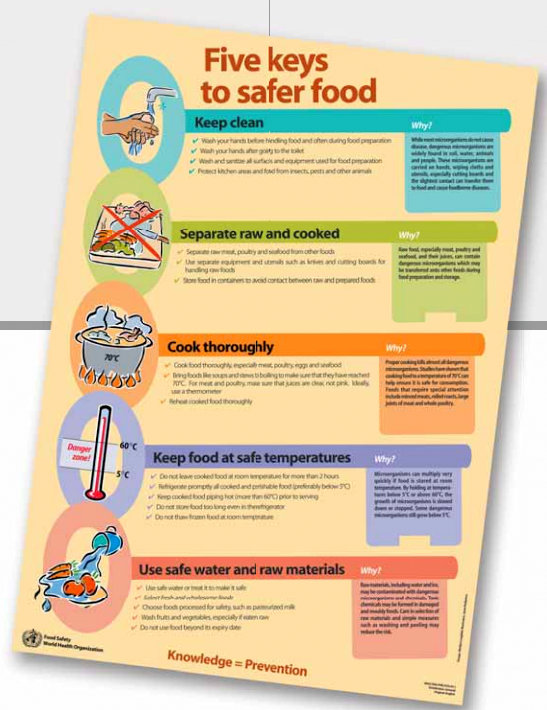World Health Day 2015 will be celebrated on 7 April, and this year the World Health Organisation (WHO) has chosen food safety as the theme for the year.
Under the the slogan "From farm to plate, make food safe", WHO this year wants to highlight the challenges associated with food safety.
WHO wants to educate the masses on the need for improving their food safety habits. It is estimated that there were an estimated 582 million cases of 22 different foodborne intestinal diseases and 3,51,000 associated deaths all due to unsafe food habits.
According to WHO, "Unsafe food can contain harmful bacteria, viruses, parasites or chemical substances, and cause more than 200 diseases -- ranging from diarrhoea to cancers. Examples of unsafe food include undercooked foods of animal origin, fruits and vegetables contaminated with feces, and shellfish containing marine biotoxins."
World Health Day 2015 Food Safety Facts
- Intestinal infections caused by viruses, bacteria and protozoa that enter the body by ingestion of contaminated food can even cause cancer.
- The enteric or intestinal disease agents responsible for most deaths were Salmonella Typhi (52,000 deaths), enteropathogenic E. coli (37,000) and norovirus (35,000).
- African region recorded the highest disease burden for enteric foodborne disease, followed by South-East Asia
- Over 40% people suffering from enteric diseases caused by contaminated food were children aged under 5 years.
- Unsafe food also poses major economic risks, especially in a globalised world. For example, the 2011 E.coli outbreak in Germany reportedly caused US$ 1.3 billion in losses for farmers and industries and US$ 236 million in emergency aid payments to 22 European Union Member States.
Five Safe Habits for World Health Day 2015
- Separate Raw and Cooked: Raw meat, poultry and seafood, can contain dangerous microorganisms, which could be transferred to other foods during food preparation and storage.
- Cook Thoroughly: Proper cooking can kill almost all dangerous microorganisms. Also pay special attention to minced meats, rolled roasts and large joints of meat during cooking. Always reheat food thoroughly.
- Keep Food at Safe Temperatures: Do not leave cooked food at room temperature for more than two hours as harmful microorganisms can multiply very quickly if food is stored at room temperature. Do not even store food too long in the refrigerator.
- Use Clean Water and Raw materials: Untreated water from rivers and canals contain parasites and pathogens, which can cause diarrhoea, typhoid or dysentery. Always use boiled clean water for cooking. While eat fruits and vegetables, always wash it thoroughly.
Read WHO's Entire Food Safety Manual



















